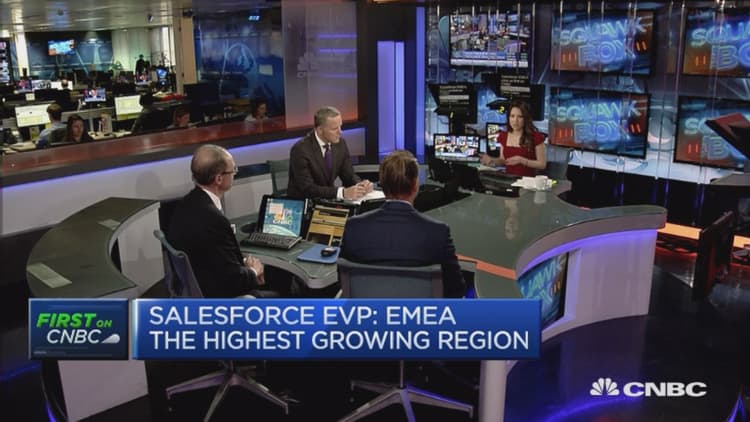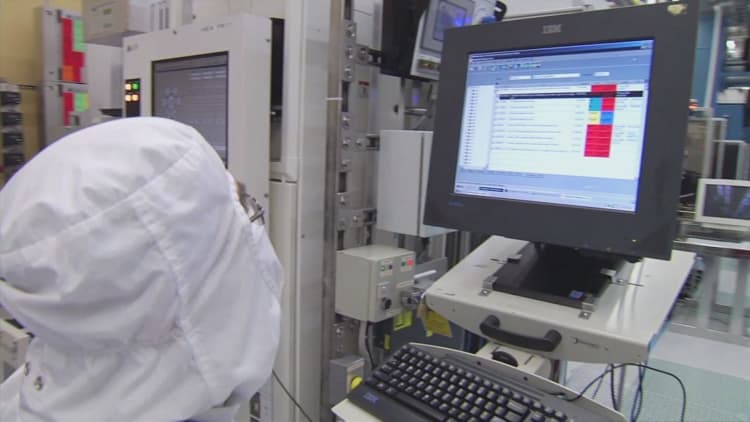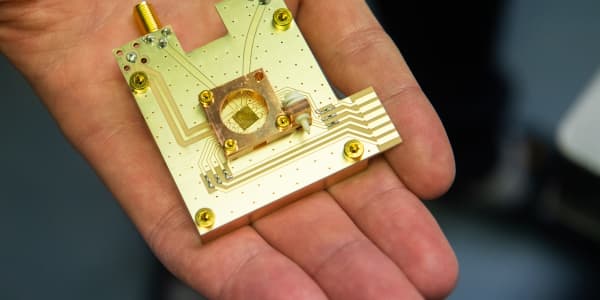Artificial intelligence (AI) is having a banner 2016.
Companies such as Facebook are turning vast amount of data and computing power into AI, Microsoft is experimenting with machine learning chat bots, while one of Google's AI programs won the complex game of Go against the world's best player, pulling out moves a human mind could not comprehend.
Advances in AI are changing the way people interact with technology across industries. The typically conservative banking and finance sectors seem particularly ripe for some disruption.
In January, tech magazine WIRED reported that a Hong Kong-based company, Aidiya, launched a hedge fund that made stock trades in U.S. equities using AI, with no human intervention required.
More recently, a technology company, Numerai, which has an artificial intelligence tournament to predict the stock market, raised $1.5 million in venture capital funds. The predictions are used by a hedge fund the company created to trade in the market.



Losing jobs to robots
The advances have also fueled speculation of a wave of job losses as machines replace humans, just as the industrial revolution rendered many occupations redundant. The World Economic Forum predicted in January that by 2020, 5 million jobs could be lost to machines.
Experts said when it came to the banking and finance sector, the topic needed a more nuanced approach.
Speaking on a panel discussing global trends in fintech at InnovFest UnBound, a digital technology conference organized in Singapore, Avinash Hegde, co-founder of a chat bot service Supertext, explained that low-skilled finance jobs, such as basic analytics and number crunching, could soon be done by AI. "The way we interact with business and financial analysts is going to dramatically change in the next few years," he said.
Would financial analysts find themselves out of a job? Not quite.
Given what's at stake - people's finances - there would be plenty of regulatory, data and accuracy issues.
"There's a lot of liabilities," said panelist Matthew Blume, director for client technology in ASEAN at financial services provider Thomson Reuters. AI systems, he said, could easily be gamed.
Blume explained if much of the trading in the stock market was done based on sentiments that were generated by AI, it would be easy to game the price of a stock by suggesting the company was going to perform poorly, even if its finances were sound, which would automatically push the stock price lower.
Need for a human touch
While much had been said about the progress of AI, there have also been some notable misses. Twitter users turned Microsoft's machine learning chat bot, Tay, into an internet troll in less than 24 hours, making it tweet out expletives, racist comments and other vulgarities before it was shut down.
"You still need that human interaction ... you need people in the mix there," Blume said.
When it came to providing personal banking services, the panelists agreed that AI was suited to perform only certain tasks, while others still required the presence of people.
"Trust is the main currency of finance," said Tim Alvner, chief financial officer at a Taiwanese fintech startup, Kuchi. "If you are going for high net-worth individuals, they need that personal touch."
Alvner explained that even for jobs that could be outsourced to an AI system, it was important to know how to reverse engineer the process in the event of a malfunction or a system glitch that could make customers lose money.
On the other hand, AI systems could sub in for times when a personal banker was not available to tend to customers, according to Hegde. "Your AI engine is able to access your personal history at a level that a banker will typically not be able to, because he is catering to three customers at one time."
Millennials who have grown up in the digital era would likely be happy receiving financial advice from robots, preferring to get cold, hard math rather than gimmicks from investment advisers, said Blume. "They have actually seen what happened during the global financial crisis."







